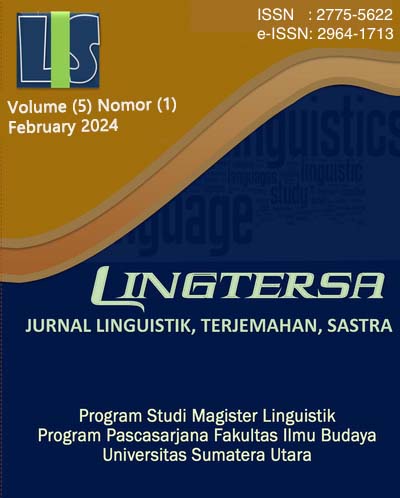Tedhak Siten: Its Existence and Cultural Values During the Fast Pacing World
DOI:
https://doi.org/10.32734/lingtersa.v5i1.12061Keywords:
tedhak siten, performance study, cultural values, java cultureAbstract
Culture has a close relationship with tradition, it is binding and is believed by the community. Preserving one tradition means maintaining one culture to still exist and be beneficial to society. Based on those claims, this study identified and described Tedhak Siten in Javanese Tradition based on Performance studies. The study used a qualitative descriptive method with the application of Performance Theory. The results showed that there are seven stages of Tedhak Siten tradition, which is; (1) Sungkeman, (2) Menitih Jadah/Tetel, (3) Climbing and Descending the Stairs from Wulung Sugarcane, (4) Splash Water, (5) Choosing toys in the chicken cage, (6) Udhik-Udhik, and (7) Pray. Furthermore, all the processes in Tedhak Siten are truly categorized in performance theory, which is; (1) it has a certain time, (2) it has a certain object, (3) it is a non-productivity work, (4) it has certain rules, and (5) it has a performance space. In addition, based on its cultural values, Tedhak Siten consists of; Harmony, Egalitarianism, Embeddedness, Hierarchy, Mastery, Affective Autonomy, and Intellectual Autonomy Values.
Downloads
Downloads
Published
How to Cite
Issue
Section
License
Copyright (c) 2024 Linguistik Terjemahan Sastra (LINGTERSA)

This work is licensed under a Creative Commons Attribution-ShareAlike 4.0 International License.









